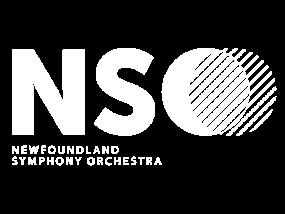




Congratulations to the esteemed Newfoundland Symphony Orchestra (NSO) on the launch of their 2024-2025 season. The NSO remains a cornerstone of Newfoundland and Labrador’s cultural arts scene, captivating with diverse programming that embraces pop culture, broadening appeal across generations. In 2023-24, the NSO engaged communities by offering in-school and virtual programs for students and free online concerts for seniors, enriching lives through music. As they begin this new season, the NSO honours maestro Marc David for his remarkable 30-year career, shaping the orchestra’s legacy and leaving a lasting impact on Newfoundland and Labrador’s cultural landscape. The Government of Newfoundland and Labrador proudly supports the NSO, recognizing its pivotal role in enriching our province’s arts
On behalf of the City of St. John’s, I extend warm greetings to the Newfoundland Symphony Orchestra as you embark on your 2024/2025 season with the inspiring theme of “Resonance.” This season holds special significance as you celebrate the remarkable 30-year career of Maestro Marc David. His dedication, passion, and leadership have left a lasting mark on the NSO, resonating deeply with audiences in our city and beyond. The arts play a crucial role in enriching our lives, fostering creativity, and bringing people together. The NSO’s commitment to delivering exceptional musical experiences reflects the vibrant cultural landscape we’re fortunate to have in St. John’s. Your performances not only entertain but also inspire and uplift, creating lasting moments. As we celebrate this milestone season, my sincere gratitude goes to the musicians, staff, volunteers, and supporters of the NSO. Your tireless efforts ensure the symphony thrives and resonates with audiences of all ages. I’m confident that this season will be filled with memorable performances that leave a lasting impact. Congratulations to Maestro Marc David on his illustrious career, and best wishes to the NSO for a successful and resonant 2024/2025 season.
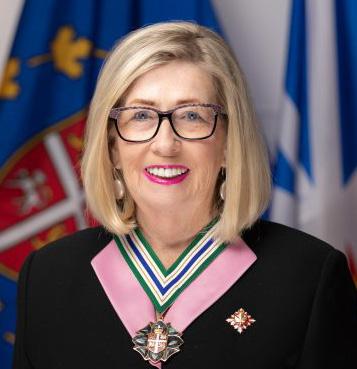
Joan Marie J. Aylward, O.N.L., B.N., R.N. Lieutenant Governor of NL

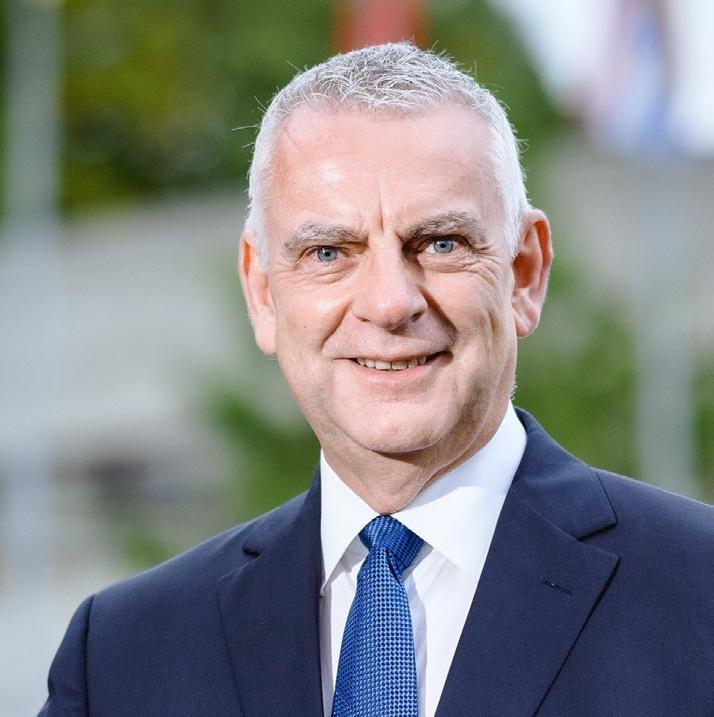
Danny Breen Mayor of St. John’s
As Honorary Patron, it is my pleasure to extend best wishes to the Newfoundland Symphony Orchestra for the 2024/2025 season. Once again, the NSO will delight audiences with a season full of performances for many different musical tastes. This year’s theme is “Resonance”. Indeed, the NSO resonates throughout our province and contributes much to our rich artistic culture. Now with 84 members, the NSO has come a long way since its inception as a fledgling ensemble in 1962. This season also marks the final one for Principal Conductor Maestro Marc David. For 30 years the Orchestra has been guided by his steady hand. We join with you in celebrating his contributions, and his leadership with the NSO. Thank you Maestro Marc David for all the joy you have brought for audiences over your years with the NSO. I hope you will enjoy each performance this year. To the musicians, staff, crew, and all who play a part within the NSO, I wish you the best for your season, which I am confident will resonate with pride for audiences throughout the province. We are so proud of you, and we celebrate your continued success as you begin your new season in the Year of the Arts. Bravo!

Friday, February 7, 2025 • St. John’s Arts & Culture Centre
We acknowledge the province of Newfoundland and Labrador as the traditional territory of diverse Indigenous groups, and we acknowledge with respect the diverse histories and cultures of the Beothuk, Mi’kmaq, Innu, and Inuit of this province. We strive for respectful relationships with all the peoples of this province as we search for collective healing and true reconciliation and honour this beautiful land together. C.M. von Weber
F. Chopin Piano Concerto No. 2 in F Minor, Op. 21
I. Maestoso II. Larghetto
Allegro vivace
INTERMISSION
P.I. Tchaikovsky
*The Guest Artist appearance is supported in part by a generous gift from the estate of the late Dr. Angus J. Neary.*


“Phenomenal”, “Fabulous”, “Incredible”, “Unbelievable”, “Miraculous”...
These words are never missing in the judge’s comments to this child in every competition.
Angela Yixuan Miao, born in 2013 in China. She studies piano with Professor Grigori Chaverdian. At age 6, she performed Bach Concerto No. 5 with the orchestra. At age 10, she recorded Chopin’s concertos No. 1 and No. 2. with String Quintet.
Angela won top prizes in Canada Music Competition, OMNI (Grand Prize Yannick Nézet-Séguin), London International Music Competition, Steinway International Music Competition and Spain Burgos Music Festival Competition.
She performed with Orchestre Symphonique de Sherbrooke, with the Armenian State Symphony Orchestra under Maestro Sergey Smbatyan.
Angela is also an excellent student in school, good on violin, sports and drawing as well.
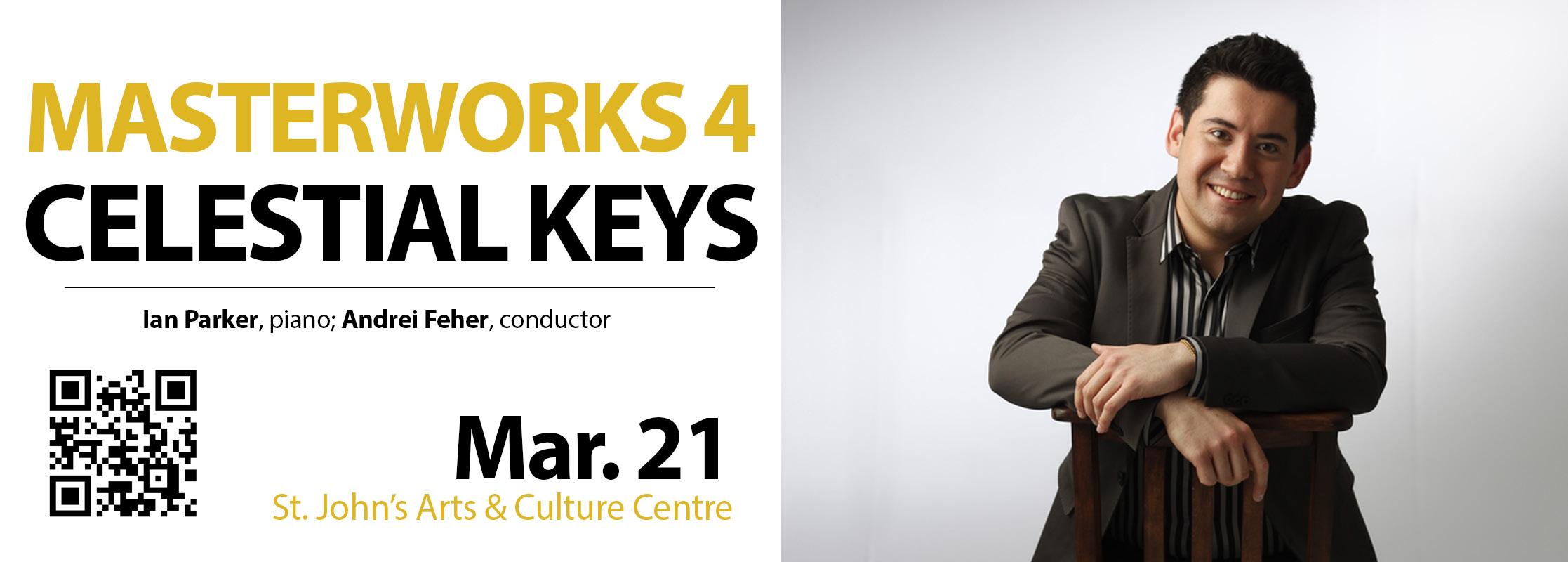


Known for his versatility across a broad spectrum of genres, dynamic interpretations and meticulous technique, American-Canadian conductor Julian Pellicano has been recently appointed to the conducting staff of the National Ballet of Canada starting with the 24-25 season and is Music Director of Canada’s Royal Winnipeg Ballet. Bringing an incisive musicality and collaborative spirit to every performance, he has built a wide-ranging international career leading the Winnipeg Free Press to proclaim that “his versatility is truly astonishing.” Associate conductor of the Winnipeg Symphony Orchestra from 2013 - 2024, Julian conducted hundreds of performances on all of the orchestra’s various series, contributed to the development of the orchestra’s programming and established himself in the community as an ambassador for the WSO. As a guest he has conducted orchestras in North America and abroad including the Seattle Symphony, Vancouver Symphony, the National Arts Centre Orchestra, Orquestra de Valencia, Edmonton Symphony, Louisiana Philharmonic, The Florida Orchestra, and Orquestra Sinfônica de Porto Alegre, among others.
Passionate about the intersection of music and dance, he has conducted numerous classical and contemporary ballet productions, performing the works of internationally renowned choreographers. Guest engagements include performances with Hong Kong Ballet, Cincinnati Ballet and Orlando Ballet in addition to performing and touring with the National Ballet of Canada and the Royal Winnipeg Ballet. Highly experienced with live-to-film performances, his film project credits encompass more than 30 titles including legendary films scored by John Williams, recent blockbusters, and classic films of the “Golden Age” of Hollywood. A musician with a penchant for collaboration, Julian has performed with an eclectic array of world-class musicians including Vadim Gluzman, Ann Schein, Timo Andres, Steven Page, Jann Arden, Paul Shaffer, Andy Summers (The Police), Rajaton, Crash Test Dummies, and Natalie MacMaster to name a few.
The creation of a new performance edition of George Antheil’s original 1923 groundbreaking work Ballet Mecanique first brought Pellicano to the public’s attention. Conductor of Yale University’s Norfolk New Music Workshop for more than a decade, Pellicano has been recognized for his transparent interpretations of contemporary music and many premieres by emerging and established composers including the first performances of Martin Bresnick’s critically acclaimed opera My Friend’s Story and the first American performance of Hans Werner Henze’s Drei Geistliche Konzerte. In 2010, he released a recording of Ingram Marshall’s Peaceable Kingdom with the Yale Philharmonia and recorded music by Australian composer Nicole Murphy. Other notable projects include a concert tour of Turkey and a collaboration with Soprano/Director Susan Narucki and the Kallisti Ensemble on Pascal Dusapin’s opera To Be Sung at the University of California San Diego. Julian Pellicano studied conducting at the Yale School of Music with Shinik Hahm and during that time also trained in masterclasses with Kurt Masur, Martyn Brabbins, Peter Eötvös, Zsolt Nagy, Carl St. Clair, L’Orchestre Philharmonique du Luxembourg and the Royal Scottish National Orchestra. From 2009 to 2013 he served as music director of the Longy School of Music Conservatory Orchestra where he developed the orchestra’s repertoire, engaged world-class soloists, and establishing a rigorous and distinctive new orchestral program. He served as Music Director of the University of Manitoba Symphony Orchestra for seven seasons.
His career grew out of unconventional beginnings, starting as a primarily self-taught percussionist, timpanist, drummer and accordionist, performing in a wide variety of styles, genres, bands and ensembles. He studied percussion at the Peabody Conservatory with Jonathan Haas, the Royal College of Music in Stockholm, Sweden with Anders Loguin, and at the Yale School of Music with Robert Van Sice where he was a member of the critically acclaimed Yale Percussion Group. As a percussionist, he has performed in concert halls and festivals in North America, Europe and Asia. He also holds a degree in philosophy from The Johns Hopkins University.


VIOLIN 1
Heather Kao
Dominic Greene
Andy Kao
Lauren Smee
Whit Fitzgerald
Claire Boudreau
Zhongli Hu
VIOLIN 2
Nancy Case-Oates
Carole Bestvater
Elena Vigna
Ilyas Duissen
Jacquelyn Redmond
Hannah Yaremko
Stewart Gillies
Karen Hawkin
VIOLA
Kate Read
Ema Shiroma-Chao
Chantelle Jubenville
Rosaura Aguilar
Emily Pynn
Norma Noseworthy
Jonathan Stevenson
CELLO
Nathan Cook
Nulibeth Ortiz
Amy Collyer-Holmes
Sandra Pope
Nancy Bannister
Katherine Shipley
Pierre Kusters
BASS
Frank Fusari
Denise Lear
Matthew Hardy
Nick Howlett
FLUTE
Michelle Cheramy
Sarah Comerford
Gillian Morrissey
OBOE/ ENGLISH HORN
Annie Corrigan
Kathy Conway-Ward
Grace Noseworthy
CLARINET
Glenn Rice
Brenda Gatherall
BASSOON
Grant Etchegary
Nicole Hand

HORN
Emily Dunsmore
Doug Vaughan
Michelle Stevenson
David Natsheh
TRUMPET
Katie Sullivan
Jill Dawe
TROMBONE
Darren McDonald
Erin Sullivan
BASS TROMBONE
Andrew Cooper
TUBA
Catherine Tansley
PERCUSSION
Rob Power
Etienne Gendron
Amy Parsons
HARP
Sarah Veber
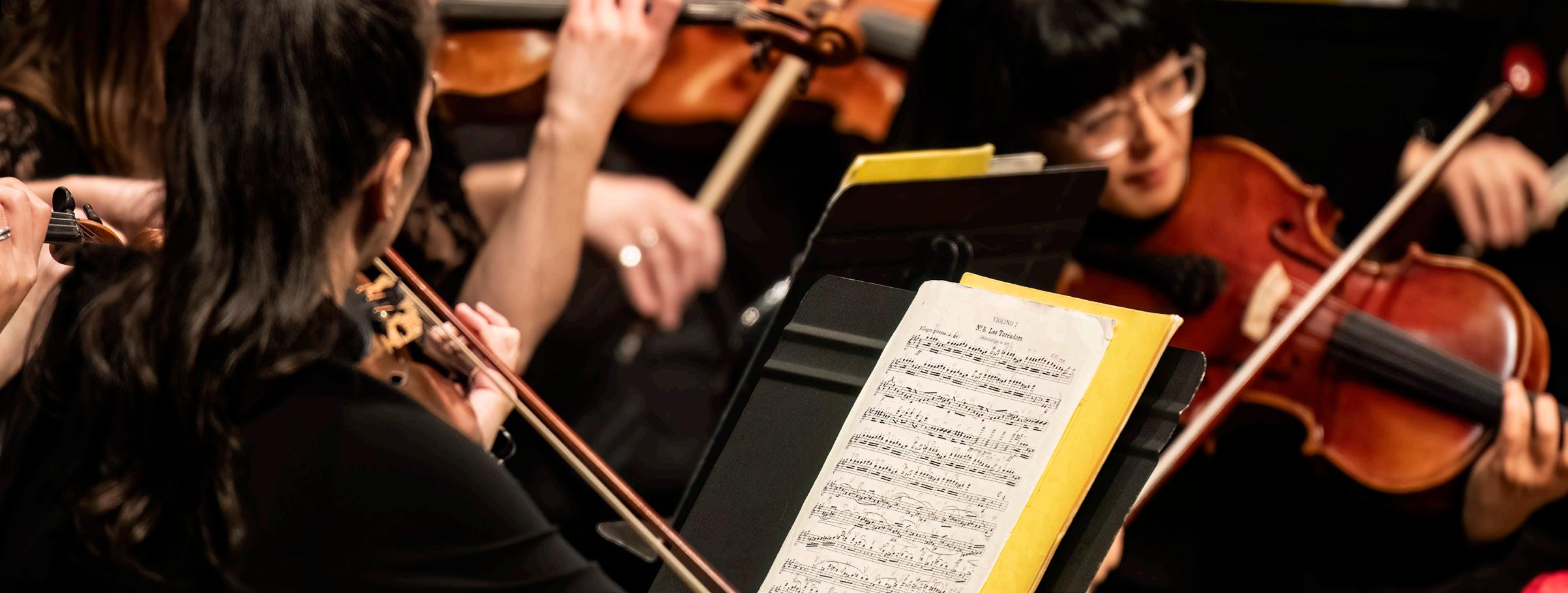
In the nineteenth century, one question occupied the minds of musicians, composers, theorists, and philosophers alike: what should music mean? On one side were those who championed absolute music, music that was non-representational, free from connections to any specific images or stories; in other words, music that didn’t mean anything specific, but existed only for its own sake. On the other side were those who advocated for program music; music with extra-musical connotations that conveyed some idea to the audience of what the music was about. These meanings could be quite specific—such as tonight’s reference to Shakespeare’s Romeo and Juliet—or more abstract, as we see in Richard Strauss’ tone poem Death and Transfiguration, which imagined the thoughts and experiences of a dying artist.
The question of what music means ties directly into what music should do for its audience. Proponents of absolute music argued that the abstract beauty of music allowed the audience to transcend their own humanity, whereas program music weakened the audience’s ability to think critically and come to their own conclusions about what they were hearing. But for guest conductor Julian Pellicano, there is nothing wrong with music that clearly communicates its meaning and asks the audience to ponder, imagine, and feel specific things. Tonight’s program—aptly timed for Valentine’s Day—celebrates the idea of love and how it was expressed by four different composers. Hearing how these composers imagined love might sound in music, we are invited to reflect on our own experiences with this most important element of human relationships.
Tonight’s program begins with the overture to Der Freischütz (1821) by Carl Maria von Weber (17861826). This opera about a young forester who foolishly sells his soul to the devil in order to win a shooting contest—and thus the hand of his sweetheart—explores not only the lengths we will go to secure love, but also the power of love to redeem us from our past mistakes.
Frédéric Chopin (1810-1849) wrote Concerto No. 2 in F (1829) shortly after he finished his formal music studies in Warsaw. The slow second movement is said to have been inspired by Chopin’s infatuation with soprano Konstancja Gladkowska, his classmate at school. The slow, aria-like movement contrasts with the more vigorous opening and closing movements, the latter of which incorporates the folk dances of Chopin’s Polish homeland.

The composition of Gustav Mahler’s (1860-1911) Symphony No. 5 coincided with a particularly happy time in the composer’s life: between starting and finishing the work, Mahler met and married his wife, Alma. It is thus unsurprising to see a link to this romance in Mahler’s symphony, with the Adagietto (1904) written as an expression of love for her. Mahler even wrote his wife a short love poem, which can be sung along to the main melody of the piece.
Although the Romeo and Juliet Fantasy Overture (1880) was not initially well received, the work now rivals The Nutcracker as one of the best known works from Russian composer Pyotr Illyich Tchaikovsky (1840-1893). Inspired by Shakespeare’s classic romance, the love theme is one of the best known melodies in popular culture, featured in television shows, movies, and even The Sims video game.
Program Notes provided by Dr. Annalise Smith



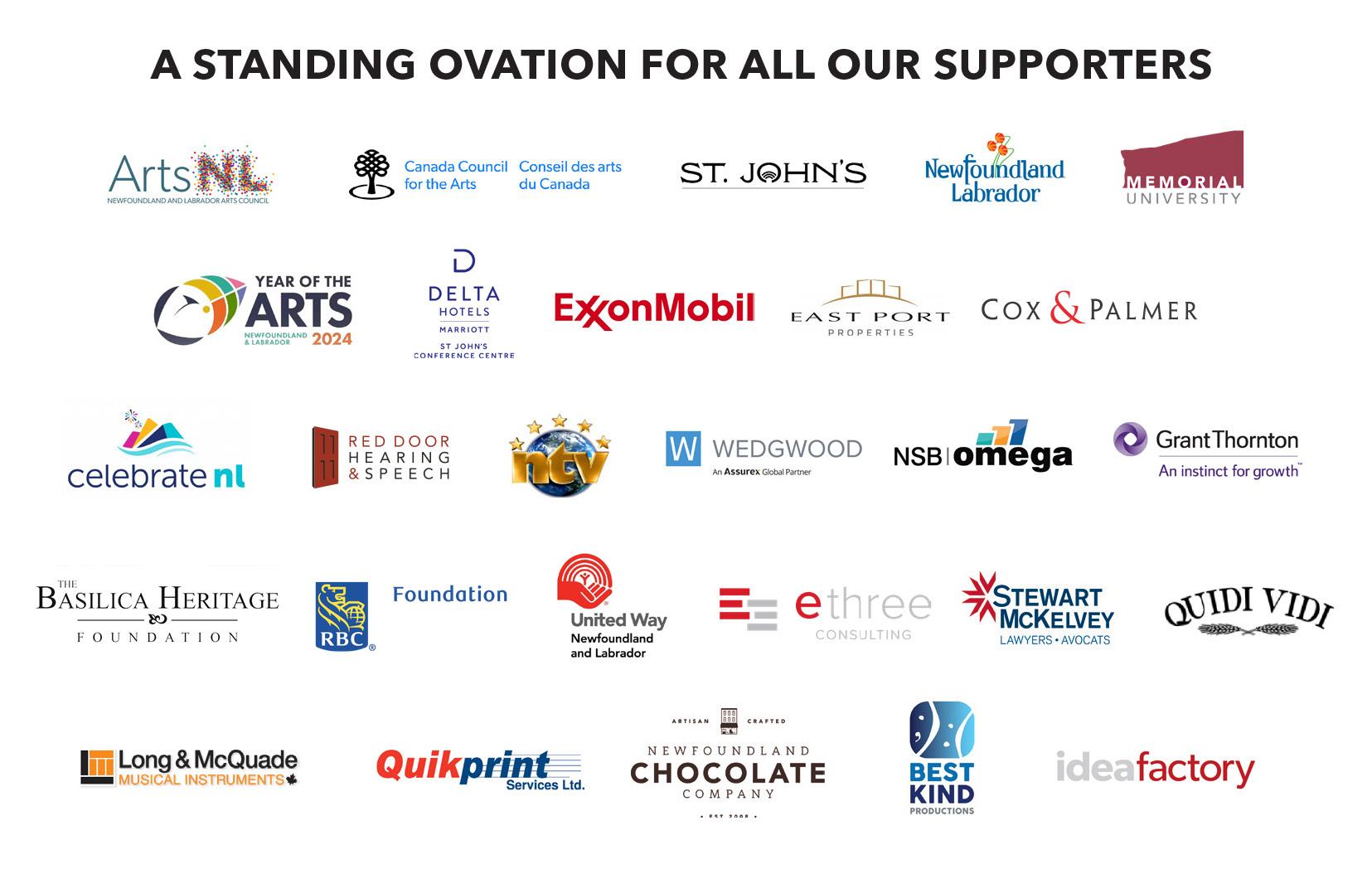

Lynn Ann Pye, Patron Relations Manager
Jennifer Brennan, Education & Outreach Coordinator
Maria Penney, Marketing & Development Manager
Dominic Greene, Personnel Manager
Steve Power, Production Manager/Video Production/Editing
Jenny Griffioen, Librarian
Kyle McDavid, Graphic Designer
N SO Bo ard
T om Hickey (Chair)
Ian Penne y (Vice-Chai r)
Paul McDonald (Past Chair)
D ouglas Wright (Treasurer)
Conor Stack (Corporate S ecretary)
J essica Chapman
H e a ther McKinnon
Michelle Davis
A n d rea Rose
Duncan Fitzpatri ck
Glenn Colton
